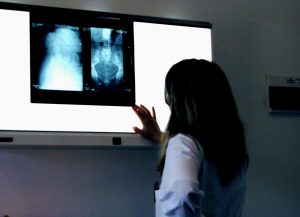
I recently attended a talk at the hospital post-graduate centre where the speaker introduced herself as the hospital’s new ‘heart failure consultant’ rather than the new cardiologist. This set me thinking, as many things do, about the strange nature of secondary care medicine. Single organ specialisation is now a thing of the past, apparently our hospital based colleagues are best employed dealing with single problems of single organs. Many of the same thoughts occurred to me when I listened to a lipid specialist describe the difficult and technical differentiation of familial hypercholesterolaemia from poly-genic hypercholesterolaemia in patients with a cholesterol of 8. They all ended up on statins by the way, and they did very well.
This degree of sub-specialisation has, of course, big knock on implications for the way we deliver care in general practice. If, as a hospital consultant, you establish yourself as the lead for a niche service then you really have to tout yourself as the best person to be dealing with that particular problem, perhaps even the only person who should be dealing with that problem. If you want to spend your time looking after malfunctioning left little toes then you need to tell everybody else to leave the left little toes to you because they simply won’t do a decent job of it. Here, guidelines are key. Guidelines are both the supply route and the fortification of all the little medical empires that spring up all around us.
For me this is the best explanation for all the guidelines that at some early and arbitrary point advise that the GP ‘consider referral’. At this point many of us will obediently refer to the specialist only to find that the specialist almost immediately loses interest in the patient and passes them on to his team of specialist nurses who then efficiently steamroller the patient along a single issue algorithm. The single organ’s single problem is often dealt with wonderfully well but how often is the patient left at the end of it feeling slightly bewildered and taking a handful of tablets every day that they don’t really understand?
Perhaps this is all well and good. While the new service functions it allows us to unload all our left little toe problems to the hospital but, about thirty seconds after its launch, the new left little toe service will almost certainly be swamped by GPs following the guidelines. Suddenly our patients are waiting an age to receive treatment that we really could deliver ourselves. But there is a new problem now because, if something goes wrong, we’re left defending a decision not to refer to our specialist when the guidelines told us that we should have done.
At this point the guidelines are no longer an aid to us but they serve only as a length of medico-legal rope with which GPs can be hanged. Disempowered by the guidelines that tell us to refer, we are left either not providing standard treatments for our patients or facing the risk that, if something goes wrong, we could end up in hot water.
In circumstances like this it is good to ask Cui Bono? And not just because saying stuff in Latin makes you seem frightfully bright. This fragmentation of care often seems to be to the detriment of the patient and it can certainly make it harder for us to take management decisions. Sometimes the greatest benefit is to the consultants in maintaining their role as guardians of their own niches.
If we are to achieve the shift of patient care back into the community then guidelines should be written with a view to helping the generalist and not the specialist, and written by people who understand what it is to be a generalist. I could go further and suggest that we should stop funding consultant led services whose practice can be boiled down to a single A4 sized flow chart and spend more of our precious money on generalists both in and out of the hospital.






